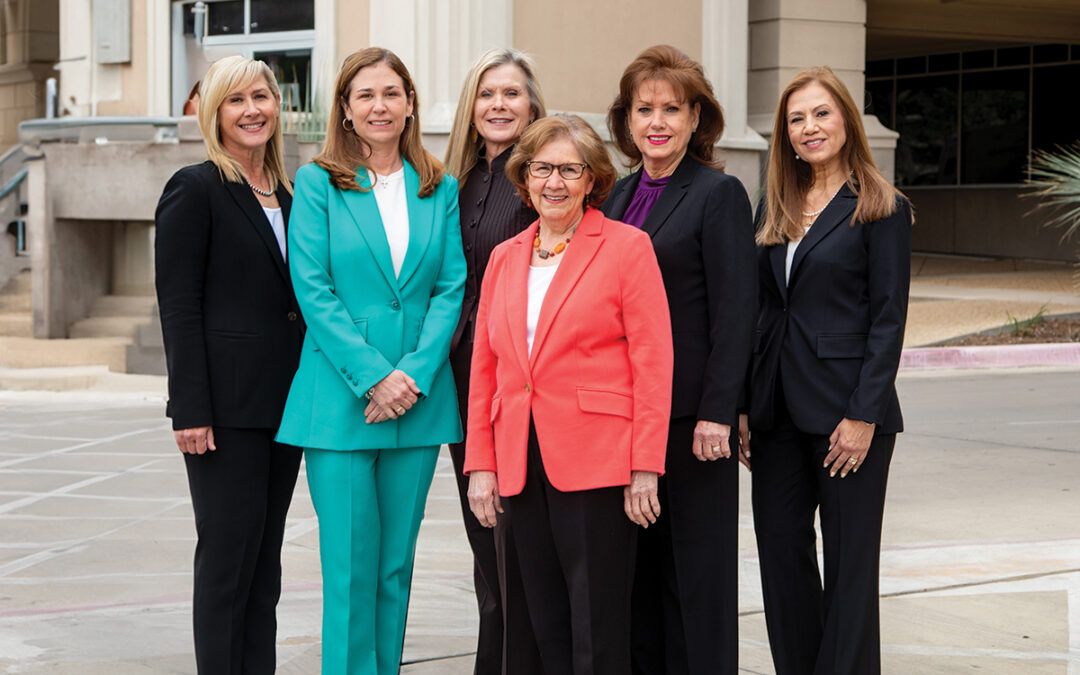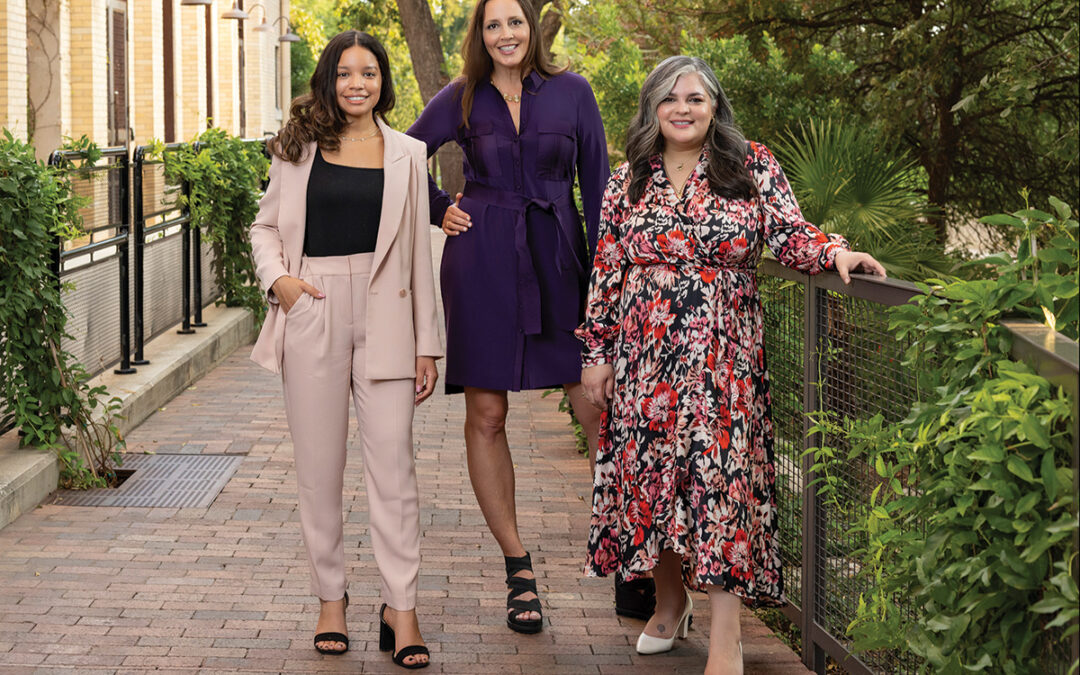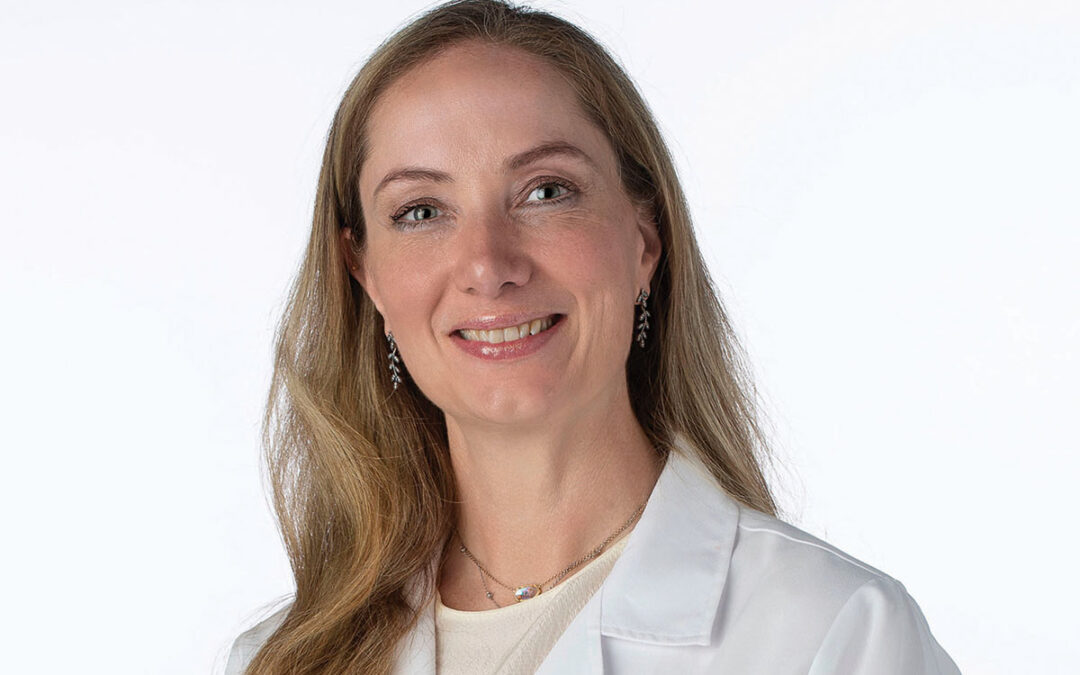A job in banking comes with a lot of stereotypes. Think of the stuffy seriousness of pin-striped suits or loan officers maintaining that desk-width distance as the crinkle of paper intrudes upon the quiet dignity of the conservative surroundings.
It might surprise some, then, that banking — while serious business — is neither stuffy nor boring, at least according to several women who went to work in banks and stayed on for flourishing careers. It may surprise some, too, that a career in banking is about a lot more than money.
The women you’ll read about here claim that their softer skills — listening and nurturing — have probably taken them further than their ability to navigate a balance sheet. The consensus: Never the same day twice and incredible opportunities to help people do amazing things.
Colleen Dean
“When I got into banking, I thought it was all about numbers,” laughs Colleen Dean. The job was a far cry from what she thought she’d do. As a young girl, she dreamed of being an art teacher. She parlayed that artistic sense into a degree in fashion merchandising, thinking she’d be a clothing designer. Dean’s first job out of college was in a large department store, where, instead, she was inundated with the business end of retail and the endless parade of inventory. She was disillusioned with her career choice and started thinking about her options. “I was good at math,” she recalls.
Dean went back to school to get her MBA in finance and accounting, and she had a singular focus — a job at a bank. As a young management trainee, she moved around the different departments. “Along the way, I realized that I wanted to work with people, not businesses,” she says.
It was a moment of clarity for Dean, who is now the managing director for private client services for J.P. Morgan Chase in San Antonio. She leads a team that manages the financial assets of the bank’s high-net-worth clients. “We handle whatever they need us to handle,” she explains. For some clients, it might be straightforward banking needs — deposit accounts and loans. Other clients want Dean’s team to manage investment portfolios or trust accounts in addition to those basics.
“Once I knew where I wanted to be, I did whatever it took to get a job in private client services,” says Dean. “It took months of phone calls and a lot of persistence, but I knew this is where I needed to work. I’ve been here ever since.”
Dean says her job is more about helping people and finding solutions than about money. “I like to win, so in my job, I translate that into winning for my clients. There’s something satisfying about knowing I’ve helped someone,” she says.
Dean, who is celebrating 20 years with J.P. Morgan Chase, has seen a lot of changes in her industry, and in her bank. “I’ve been through about eight mergers,” she says. “The bigger they get, the tougher it is.” She relies on some basic touchstones that have provided guidance to her over the years. “A great attitude can make or break you,” she says.
Dean looks back to that earlier time, when she was working at the department store. “I must have been pretty frustrated in my job, and I had a bad attitude to show for it,” Dean recalls. “My dad sent me one of those motivational tapes about attitude.” Dean remembers being cynical about the tape and reluctantly listened to it during her drive to work one day. That one day turned into a daily routine for Dean, who began listening to the tape every morning on her way to work.
“After a couple of weeks,” Dean says, “my manager commented on my positive attitude. I’ve always remembered that — it was a real ‘aha’ moment for me.” Over the years, Dean steadfastly held onto that tape, bringing it out when she needed a pick-me-up. “We’re all in control of that component in our lives,” she says.
Beverly Fortner
As banks gobble up other banks and become even bigger banks, Beverly Fortner is happy to be working for a bank that isn’t interested in any of that.
It’s not that Wallis State Bank doesn’t have an appetite. In fact, the Houston-area bank is growth-minded, which requires a little eating. In the San Antonio location, that means free popcorn for everyone.
It seems like such a small thing, offering free popcorn on Friday afternoons to anyone who walks in or just walks by. But Fortner says the popcorn is helping them become memorable in a city where they’re the new kid on the block. “We had a man come in the other day, concerned that Friday was a banking holiday, and he wanted to know if we’d still be making popcorn on Friday, even though the bank would be closed,” she laughs.
As president of Wallis’ San Antonio banking center, Fortner knows it takes more than popcorn to run a successful bank, but she appreciates the simplicity of it, just as she appreciates Wallis’ philosophy on banking, which, in the face of mergers and megabanks, is, well, as simple as popcorn. “Wallis State Bank started as a small rural bank in a farming community,” she explains. “It still is a small-town bank, it’s family-owned, and it is absolutely not for sale. That stability is one of the reasons I came to this bank.”
Fortner, who joined Wallis two and a half years ago, cites fewer management levels and less bureaucracy as benefits of working for a bank on this scale. “We’re more like that community bank that we used to see more of. We don’t try to be all things to all people,” she says.
That sort of homespun Main Street mentality strikes a chord with their account holders and customers. “We don’t even have a drive-through,” she jokes.
Focusing on deposit accounts and loans, Fortner says the bank prides itself on helping its customers grow. “Service sets us apart,” she says. “It’s what we bring to the table. Because we’re small, we can be more flexible and creative when a customer comes to us with something that’s a little different,” she explains.
Fortner sees Wallis Bank’s “retro” attitude as a harbinger of things to come. As banks offer more automation — ATMs, electronic bill pay and call centers — Wallis offers all that and a dose of human interaction. “You can’t take people out of the equation,” she says. “There is no amount of automation out there that can take the place of that exchange between people.”
Laurie Griffith
In case people think banking is complicated, Laurie Griffith boils it down pretty quickly: “My job is to make sure my clients are successful.”
As the executive vice president of real estate for Texas Capital Bank, Griffith focuses on real estate lending to commercial real estate customers and homebuilders, but the service often extends to full-service banking for those customers. “If they need deposit accounts, investments and insurance, banking services for their employees, mortgages, we do that too,” she says. “Banking is no longer this traditional, walk-into-the-bank-go-to-the-teller-line sort of thing,” she says.
Griffith says she never planned to have a career in banking. As a young girl growing up in Houston, she saw her parents struggle to make ends meet and decided that an education was her way out of that legacy. She met her husband while she was studying finance. He was a San Antonio native, so they settled here after graduation. “I was wide-eyed and ready to work, and I didn’t know anybody in San Antonio,” she recalls. A friend of a friend mentioned a job opening at a bank, and Griffith got the job — assistant to the president.
Griffith learned the real estate banking ropes during real estate’s darkest days: The real estate market bust of the late 1980s and early 1990s. That first job taught Griffith how to do it all: Loans, backroom operations, funding draws. “It was a great foundation for what goes on in the back office of a bank,” she says. As the real estate bust created record repossessions and bankruptcies, Griffith saw it all — and did it all — firsthand. “I had to learn how to navigate all those lengthy documents, and I got to negotiate lawsuits, and I testified for the bank on the bankruptcies,” she says. “From the bank’s perspective, I learned what not to do by experiencing the mistakes and loopholes that made us vulnerable.”
Griffith is grateful for that experience, which she says positioned her for a successful career in real estate banking. She says that the job is so fast-paced that it can be tough to slow down and celebrate successes, but she still finds the challenges and rewards in each day. She sees herself primarily as a solutions person and a problem-solver. “I pride myself on fitting square pegs into round holes,” she says. “There are different ways to do things, and you just have to figure them out.”
Cyndi Hensley
For those people with financial wealth, it’s fortunate — and necessary – to have someone with some money smarts looking out for your interests.
Cyndi Hensley is one of those people. As senior vice president of private client services for Bank of America, Hensley preserves and builds wealth for B of A’s high-net-worth clients. “Wealth planning and strategy, investing, loans, real estate — we consider anything our clients want to do, and we find a way to make it work,” says Hensley, who like many others in this business, started her banking career as a young management trainee, making the circuit of the different departments. When she arrived in private banking in 1990, that’s where Hensley stayed. “I plan to be here for the rest of my career,” she says.
“Private banking allows me to offer very personalized service to clients,” she says. “Service is what I learned way back when, and it’s what I enjoy.” Hensley’s clients have the luxury of knowing her direct phone number, forever freeing them from automated phone systems and call center roulette.
She prides herself on the lower client-to-manager ratio that allows her to build relationships. “I wouldn’t want to move through my day and not know my clients well,” says Hensley. Indeed, knowing the intimate details of her clients’ financial lives is a unique — and rare — glimpse that is the exclusive reserve of people in jobs like Hensley’s. For some clients, Hensley sets up trusts and helps with estate planning. For others, she manages investments, from mutual funds to ranches or oil and gas interests. Still others want her to do it all, including asking Hensley to pay their bills and manage other personal services.
Hensley, who received a BBA in marketing from Texas Tech University, started as an art major and planned a career in interior design. “It was too esoteric for me,” she says. Although she never dreamed that a career in banking would be her calling, Hensley is motivated by her desire to help her clients reach their goals. “That’s very satisfying to me,” she says.
Today, she also holds NASD Series 7 and Series 66 licenses, which allows her to be directly involved in helping clients make investment choices.
She counts her interest in varied topics and her interest in current affairs as some of her greatest career resources, but one of her greatest challenges is more like walking a tightrope: “This industry is so regulated. We need to be in compliance with regulators, and we need to satisfy shareholders, but I also need to do what I can to meet my clients’ needs. It’s a real balancing act.”
Terry Witte
For some people, it might be difficult to tell when you’re having the time of your life at work. For Terry Witte, it’s clear: That time is now.
As senior vice president and senior commercial relationship manager for Wachovia Bank, Witte gets up close and personal with the people and the balance sheets to support business account holders. She provides solutions, from credit to cash management and investments for companies with big-ticket sales and gross revenues.
“I am living the most rewarding and challenging time of my banking career,” Witte says. She joined Wachovia in June 2005, in the early stages of Wachovia’s retail bank expansion into Texas. The job appears to be a great match for Witte. “I’m motivated to compete and succeed,” she says. “I love a challenge, and I love to build things from the ground up.”
She started her professional career back in the mid-1980s, with a degree in petroleum and land management, but not long after she got her degree, career choices in that field became limited, to say the least. Laid off during the oil and gas bust and a few hours short of her MBA, Witte cleverly marketed herself as a young MBA eager to get into the banking industry. It worked, and she’s been in the business ever since. “I didn’t graduate from college expecting to be a banker,” she says. “But once I got here, I’ve never regretted it.”
Witte says that the competitive environment and ever-changing nature of banking scores high on the job satisfaction scale for her. “This industry has to be one of the most dynamic and fast-paced industries out there,” she says. “I’m challenged every day, and for people who love a challenge, this is a great industry to grow in.”
Although Witte provides banking resources to her clients and their businesses, she does so much more on a personal level and that, she says, is what distinguishes one bank from the next. “Relationships with people are still the most important and most rewarding part of every day and every deal I work on,” she explains.
In a competitive industry like banking, Witte says, banking products and services always evolve and improve, so she relies on relationships to keep that edge ever-sharp: “The real strategic and creative solutions are on that relationship level between people who have trust in one another.”
Author: Susan Sheffloe Speer
Photographer: Janet Rogers









0 Comments